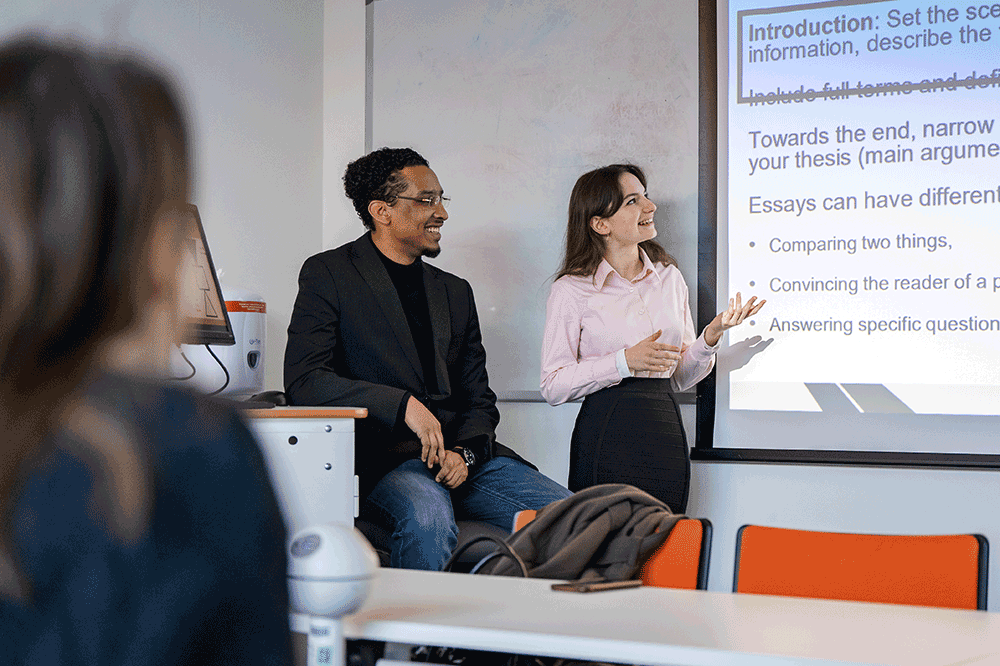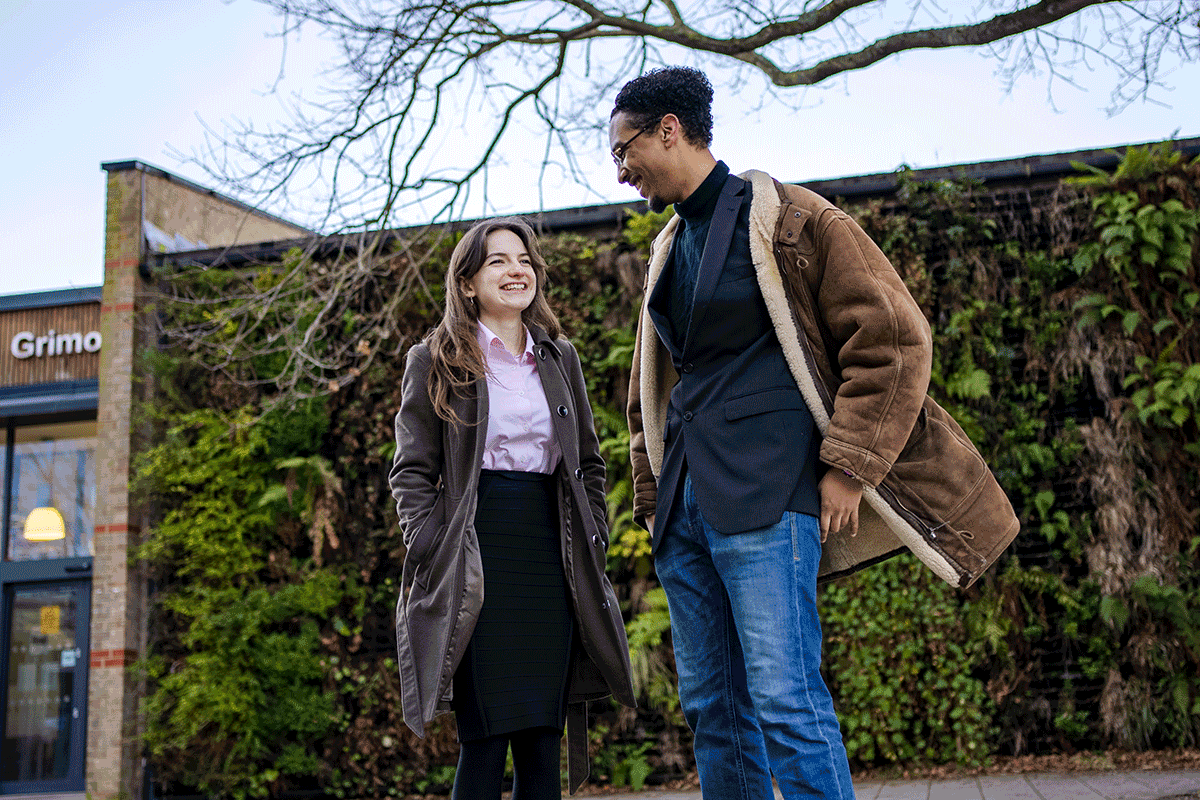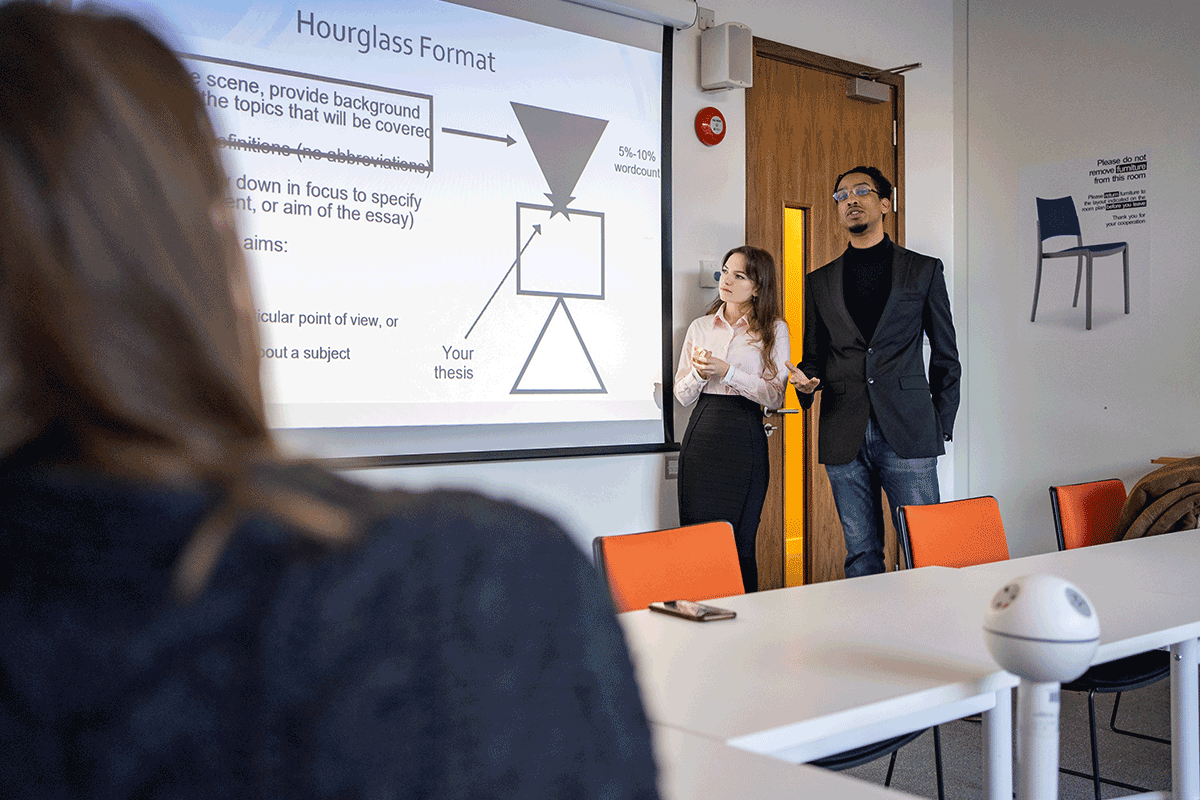Nicolette and Tobias are this month’s Kent Stars. Tobias and Nicolette, both peer mentors, created a series of successful workshops for fellow Psychology students to ensure knowledge and connection was not lost between year groups after the pandemic. Hear more from our motivational mentors Tobias and Nicolette:
Nicolette – “Hi, my name is Nicolette Wilson and I’m a second-year psychology student. Psychology has always been an interest of mine. Since coming to university, I have become a student representative and a peer mentor. These responsibilities have allowed me to connect with and explore my passion to help others, using the insights I gain from studying psychology and human behaviour to learn how I can inspire others to succeed at becoming the best versions of themselves.”
Tobias – “My name is Tobias, I am a Stage 3 Psychology student at Kent. I am a student mentor and part of the student experience team that organises seminars to highlight critical study skills needed to pass the first year of Psychology. I have experience as an assistant researcher, through the Research Experience Scheme in a cognitive neuropsychology project investigating mood, emotion, and executive cognitive control in my Stage 2. This year I am writing my final year project on individuals’ approval of out-group aggression in forensic and social psychology.”
Tell us about your APA Finesse workshops and how you came up with the idea to help reconnect students.
Tobias – “When I started my degree at Kent in 2020, the UK went into lockdown shortly after start of term. During my first year all lectures were online, effectively isolating each year group from one another. By the time we came out of lockdown we were still facing restrictions such as social distancing and Stage 3 students had graduated. In Stage 2, I realised that by the end of the year, another generation of psychology students would graduate and that their experiences would not be passed on to the next generation. It was time to rebuild and to start collaborating again.”
“As a Stage 2 peer mentor, I saw meaning in helping other students through their transition to university life. I came up with the idea when I was speaking with a fellow peer mentor about working together to help our mentees understand American Psychological Association (APA) writing style and report structure. Due to the lockdown, there was a decline in student-to-student coursework collaboration, making it more challenging for students to figure out what information was most relevant for each academic term.”
“We organised a workshop where we presented foundations of psychology essay writing in APA style to our peer mentees. This was the start of APA Finesse, and in subsequent workshops we invited other Stage 1 students, regardless of whether they were part of the peer mentoring program. APA Finesse has since then expanded to include students of both Stage 2 and 3 as well as postgraduate students of various psychology disciplines.”
Nicolette “I became a student representative in my first year and took an interest in how students were finding the course. It immediately became apparent to me that there was a common need among students to better understand how to approach their assignments and with adjusting to the new expectations at university.”
“I went along to Tobias’ APA Finesse session and found it incredibly useful. I knew the potential it had to help the rest of the students in my year too. I was inspired get involved and help Tobias reach more students. By this point, I had already been thinking deeply about the causes of problems faced by students. We began discussing how to approach these problems, and pitched a series of workshops to a few lecturers, who welcomed and supported us with feedback and publicity. As a student, I can bring my own student perspective on how to overcome these issues, in a way that can’t be covered by lectures.”
“We launched the sessions at the beginning of this academic year for the new Stage 1 students, covering the key skills that are important for a student to develop, to grow and succeed in the course, including the basics of APA format and how a good essay is structured. The workshops encourage engagement from the students, getting them to answer and ask questions which develop their understanding of these key skills. Three workshops so far have been recorded and uploaded to Moodle, creating useful resources for students to refer to, whenever they need.”
What advice would you give to other students?
Nicolette – “Use your time as an undergraduate as a chance to discover your interests. University is a unique place and time in your life, full of opportunities. There are many ways to learn and develop your interests during your time here, so normalise trying new things and pushing yourself out of your comfort zone. Even though it is often scary to do so, it is the best thing you can do, and it will always be worth it. Dedicate some time to getting involved with the things you discover you are passionate about. It is both exciting and rewarding and will lead you to some amazing places. Many opportunities await, so get involved!”
Tobias – “Although diversifying your friendships to include persons outside of your discipline or even non-students is healthy, I sincerely advise all students to identify at least one student on your course, preferably someone that you have multiple modules in common with and building an academic relationship with them. I can say with certainty as a senior undergraduate student and as a peer mentor, that having a study partner in your specific discipline will boost your engagement with the learning material. A solid academic relationship will also cultivate your independence by increasing your personal accountability as well as your accountability to others.”
What are your plans for the next year?
Tobias – “I will stay at University of Kent next year to take a master’s degree in Forensic Psychology to pursue the independent BPS qualification route in forensic psychology as a trainee. I intend to further support undergraduate students in the hopes of strengthening the student culture at the School of Psychology. I hope to join the Psychology Society Committee next year and continue my work with fellow students of psychology and our professors, whose communication efforts and support have been invaluable.”
Nicolette – “I am involved in a research experience scheme project with some lecturers and students, aimed at understanding the current challenges for students in university education and how this impacts mental health. I hope to conduct research into this area for my final year project. I also joined the Association of Speakers Clubs earlier this year to practise public speaking. Writing speeches has been an excellent outlet for me to begin speaking about the topics I am passionate about and develop my character.”


